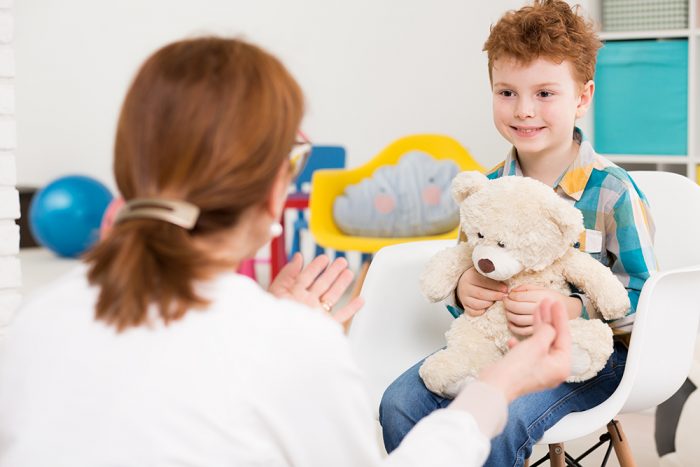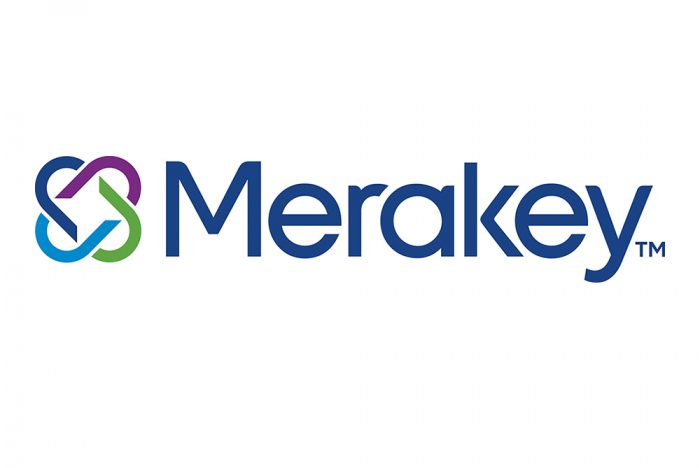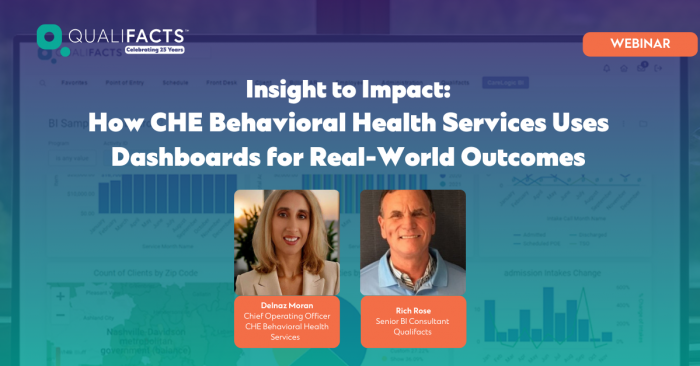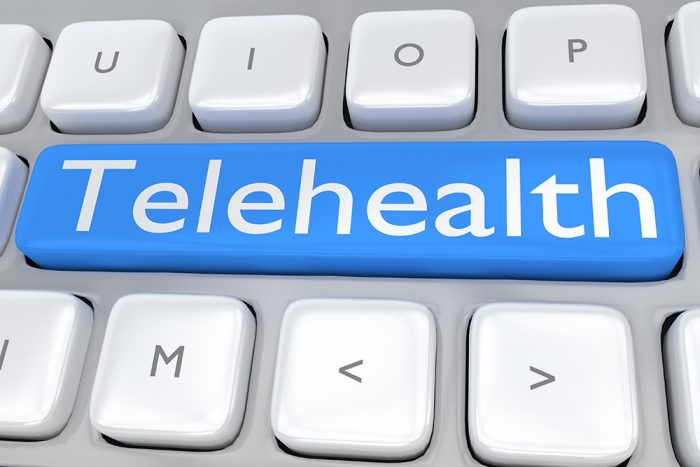National Council for Mental Wellbeing, NASMHPD Announce Major Investment in CCBHCs
RCPA Member KidsPeace’s Healing Magazine Examines Opportunities for Youth, Staff, and Caregiving Organizations in Mental/Behavioral Healthcare

DHS Releases New Work Requirements Resource for SNAP Recipients & Applicants
Under new federal rules, to keep or become eligible for SNAP benefits, some recipients will have to meet work requirements that include working, volunteering, or participating in an education or training program for at least 20 hours a week (or 80 hours each month) AND report that they are meeting these work requirements.
To help SNAP recipients and applicants find out if they need to meet this requirement, the Pennsylvania Department of Human Services (PA DHS) has launched a new online screening tool.
By answering a simple set of yes or no questions, SNAP applicants and recipients can find out if they need to meet the work requirements, if they are already meeting the work requirements, or if they are eligible for an exemption.
The screening tool is not a final determination of whether someone is meeting the work requirements or is eligible for an exemption, but it can help recipients and applicants have a more informed conversation with their caseworker.
The new work requirements will apply to Pennsylvanians who:
- Are between 18-64 years old;
- Do not have a dependent child under 14 years old; and
- Are considered physically and mentally able to work.
In addition, being a veteran or a current or former foster youth age 18–24 will no longer be an exemption.
Some people may still be exempt from work and reporting requirements if they meet a different exemption. You can learn more about these work reporting requirements, who they affect, and more about exemptions at DHS’s website.
State Budget Investments Help Fight Food Insecurity
Pennsylvania’s charitable food network and our agricultural community are vital to keeping our neighbors and communities fed. Governor Shapiro’s 2025/26 budget delivers major investments to combat hunger, strengthen the charitable food network, and support Pennsylvania farmers. The budget includes a historic $11 million increase for food security, including:
- $3 million for the State Food Purchase Program and $1 million for the Pennsylvania Agricultural Surplus System (PASS);
- $2 million for a new state Food Bucks program to supplement SNAP; and
- $5 million in new funding to Pennsylvania food banks.
Help Us Spread the Word
PA DHS has developed a communications toolkit to help Pennsylvanians understand the changes happening to SNAP.
We ask RCPA members, advocates, and stakeholders to view and share the toolkit, which includes sample text, social media posts, and more.
Reminder: From Chaos to Clarity — RCPA and PUPS Software Webinar on December 9

From Chaos to Clarity: How Human Service Leaders Bring Order to Oversight
Tuesday, December 9, 2025
12:00 pm ET
Register Here
Keeping up with inspections and licensing requirements can feel like an endless chase — especially when each site or program has its own system. Many organizations are finding new ways to bring structure, visibility, and calm to these responsibilities, even with limited resources.
Join us on Tuesday, December 9, 2025, at 12:00 pm ET for From Chaos to Clarity: How Human Service Leaders Bring Order to Oversight, a live webinar co-hosted by RCPA and PUPS Software. This session brings together leaders for an open, practical conversation about streamlining inspections, licensing, and operational readiness.
Featured Panelists:
- Jim Sharp, Chief Operating Officer & Director of Mental Health Services, RCPA
- Savannah David, Service Director – ID/A NE Region, Step By Step, Inc.
- Morgan Gerety, Director of Maintenance, Caring, Inc.
We’ll talk about:
- Practical steps to bring consistency and visibility to inspections and licensing;
- How to move from paper and spreadsheets to digital processes without overwhelming your team;
- Real examples of accountability and readiness in action; and
- Lessons learned from organizations that replaced annual scrambles with steady progress.
Whether your team is just getting started or already modernizing oversight, you will walk away with useful ideas, peer insights, and tools to support your next steps.

RCPA Member Qualifacts to Host Webinar on CHE Behavioral Health Services Dashboard December 3
Insight to Impact: How CHE Behavioral Health Services Uses Dashboards for Real-World Outcomes
Featuring: CHE Behavioral Health Services & Qualifacts
Wednesday, December 3, 2025
1:00 pm ET; 12:00 pm CST
Register Here
In just over a year, CHE Behavioral Health Services leveraged Qualifacts’s modern Business Intelligence (BI) solution — an integrated data and analytics visualization platform delivering critical insights — to revolutionize its operations. The result? Improved financial performance, reduced denials, enhanced provider productivity, and board-ready reporting.
Join this webinar to see how CHE scaled dashboards across 11 states, built role-specific dashboards and reports, and turned data into meaningful, motivating narratives.
This webinar will:
- Unpack the organizational challenges that led CHE to stand up a modern BI solution.
- Learn the strategies CHE deployed to turn dashboards into decisions, with a focus on how CHE tracks clinical outcomes and quality assurance.
- Show how role-based dashboards track productivity, incomplete visits, and more — giving regional managers and providers shared visibility.
- Reveal what’s next for CHE and review best practices for behavioral health organizations looking to build a data-driven culture.
Featured Speakers:
Delnaz Moran
Chief Operating Officer, CHE Behavioral Health Services
Delnaz develops CHE’s overarching business strategy and implements workflows and resource allocation models that drive growth, operational excellence, and clinical impact. Her experience spans leadership roles across healthcare operations, behavioral health, and applied behavior analysis — each focused on improving access and outcomes for vulnerable populations.
Rich Rose
Senior Business Intelligence Consultant, Qualifacts
With nearly 30 years of experience in Quality and Compliance, Rich began his career with the Indian Health Service before leading quality improvement and compliance at an Oregon behavioral health program. Today, he helps organizations leverage Qualifacts’s BI tools to track outcomes and transform data into decision-making power.
PA Releases Rural Health Transformation Plan
From Pennsylvania Capital-Star “Pa.’s Rural Health Application Reveals Priorities in Federal Funding Request,” November 20, 2025:
Pennsylvania is hoping to secure its own slice of a $50 billion rural health fund in the face of federal Medicaid cuts, with a focus on bolstering a beleaguered workforce and expanding health access for more than two million people.
The Rural Health Transformation Fund was a last-minute addition to President Donald Trump’s summer budget bill that imposed Medicaid work requirements and cut upwards of $51 billion in funding to the commonwealth over the next decade. That new fund is worth roughly 37% of the estimated lost Medicaid funding in rural areas…
The 67-page application requests up to $200 million in annual funding over the next five years, totaling $1 billion. Its six focuses include: technology and infrastructure, workforce, maternal health services, behavioral health services, aging and access, and emergency medical services and transportation.
The U.S. Department of Human Services is expected to award funding by the end of the year.
Key objective targets are:
- Access to care: More than 85% of Pennsylvanians can get a routine primary care appointment within four weeks and urgent care appointments within one week.
- Digital connectivity and telehealth: More than 85% of rural hospitals and clinics will have broadband and telehealth functionality. More than 50% of rural hospitals and clinics connected via Fast Healthcare Interoperability Resources.
- Workforce adequacy: Reduce rural hospital vacancy rates by 10% for key direct care roles. Add three new rural training programs.
- System sustainability: More than 60% of systems partnered with rural Community Health Centers for specialty care.
- Health outcomes: Reduce the number of pregnant women living in rural areas with inadequate prenatal care by 20%.
From the PA Rural Health Transformation (RHT) Program Application:
Pennsylvania’s rural health transformation strategy is grounded in a balance of statewide coordination and regional leadership and collaboration. Pennsylvania’s “Health Hub” state agencies (Human Services, Health, Aging, Insurance, Drug and Alcohol Programs), and other partner agencies will establish clear strategic priorities focusing on access, workforce, maternal health, aging, behavioral health, EMS and infrastructure. Pennsylvania will leverage statewide technical expertise, evaluation, and financial oversight and support. Strong regional rural care collaborative will be composed of a roster of regional stakeholders that prioritize local needs, develop effective local sustainable solutions, and leverage existing resources and assets.
Pennsylvania will leverage established regional entities that coordinate regional economic development. These Partnerships for Regional Economic Performance (PREP) organizations are long-standing, quasi-governmental organizations that convene regional stakeholders, administer federal and state grants, collect local data, report outcomes, and catalyze public and private partnerships for regional economic development. They bring established governance structures, convening power, and a track record of successful cross-sector collaboration. PREPs (Figure 2) will convene regional stakeholders to create Rural Care Collaborative (RCCs) to align initiatives with regional economic planning and development – making the RHTP investments sustainable and promoting long-term partnerships.
If you have any questions, please contact RCPA COO and Mental Health Policy Director Jim Sharp.
Mental Health America Releases 2025 Annual Report
Mental Health America has released their State of Mental Health in America 2025 Report. The report highlights the latest national data and provides state-level rankings on mental health and wellbeing in the U.S. It serves as a collection of data across all 50 states and the District of Columbia, with the goal of providing a snapshot of mental health status among youth and adults, tracking changes in prevalence of mental health issues and access to mental health care, and understanding how changes in national data reflect the impact of legislation and policies.
The report highlights:
- Prevalence of mental health and substance use issues;
- Access to adequate insurance and mental health care; and
- Which states have higher barriers in accessing mental health care.
Pennsylvania ranked 7th in the overall rankings, indicating a lower prevalence of mental illness and higher rates of access to care. Individually, PA was ranked 4th in access to care, 30th in prevalence of any mental illness, and 31st in mental health workforce availability.
Read the full report here. Please contact Emma Sharp with any questions.
DDAP to Host Annual Women and Children’s Meeting on December 10
The Pennsylvania Department of Drug and Alcohol Programs (DDAP) will host its Annual Women and Children’s Meeting from 10:00 am – 12:00 pm on Wednesday, December 10. The virtual meeting provides an opportunity to connect, collaborate, and share updates on programs and initiatives that support women and children across the Commonwealth. Participants will hear from county administrators and receive statewide updates highlighting innovative efforts and best practices related to supports and services for women and children in Pennsylvania.
Use the information below to join the meeting or add the meeting to your calendar.
Join the meeting
Meeting ID: 251 287 171 369 74
Passcode: RJ2pc2fR
Dial in by phone
+1 267-332-8737,,471562118# (United States, Philadelphia)
Find a local number
Phone conference ID: 471 562 118#
Medicare Telehealth Practices Restored Until January 30, 2026
From the Center for Connected Health Policy 11-18-25 Newsletter:
Last week, after agreeing to a deal to end the federal government shutdown, Congress passed a continuing resolution that would reopen the government, at least through January 30, 2026. Within the continuing resolution package was an extension of the Medicare telehealth waivers, which had previously expired on October 1, 2025 (NOTE: The package contained several divisions, however the link provided in this newsletter only goes to the section containing the telehealth items). In the passed legislation, the telehealth waivers that had expired will now be extended through January 30, 2026.
| TELEHEALTH WAIVER | NEW EXPIRATION DATE |
| Waiving the location requirements (geographic and type of site) | January 30, 2026 |
| Expanded list of eligible telehealth providers | January 30, 2026 |
| Allowing federally qualified health centers (FQHCs) and rural health clinics (RHCs) to be eligible telehealth providers | January 30, 2026 |
| Delaying the prior in-person visit for mental health when certain permanent telehealth policy requirements are not met | January 30, 2026 |
| Delaying the prior in-person visit for mental health provided via telecommunications technology for FQHCs and RHCs | January 30, 2026 |
| Allowing of audio-only for telehealth services | January 30, 2026 |
| Extending the use of telehealth to conduct a face-to-face encounter for recertification of eligibility for hospice care | January 30, 2026 |
| Extending the Acute Hospital Care at Home Initiative | January 30, 2026 |
In drafting the extension, Congress struck out the previous date in federal law of “September 30, 2025” (when the waivers previously ended) and placed the new expiration date of “January 30, 2026.” The extension of the waivers will be retroactive to September 30, 2025. Therefore, if a telehealth interaction took place starting October 1 through to the end of the shutdown, but was not eligible for coverage/payment under permanent telehealth policy, it would now be eligible under federal law.
What does this mean in light of the final rule for the 2026 Physician Fee Schedule (PFS)?
In the final rule for the 2026 PFS, the Centers for Medicare and Medicaid Services (CMS) aligned their policies on the prior in-person visit for mental health when an FQHC/RHC uses telecommunications technology with what Congress had put in place for other provider types (i.e. psychologists, counselors, etc.) delivering mental health services via telehealth when certain requirements (i.e., patient location) under permanent telehealth policy were not met. Prior to this continuing resolution being passed, CMS required that FQHCs and RHCs must meet the prior in-person visit requirements for all mental health visits that took place via telecommunications technology starting October 1, 2025. Due to the funding bill extensions, this requirement will no longer need to be met as the waiver’s expiration date is now January 30, 2026, with the in-person requirements now becoming effective on or after January 31, 2026. Even though CMS changed the federal regulations to reflect the need to have a prior in-person visit for mental health visits provided via telecommunications technology by an FQHC or RHC starting October 1, 2025, federal statute would take precedence over regulations. You can read more about the final rules for the 2026 PFS in CCHP’s fact sheet.
As for the effect this continuing resolution will have on other items in the 2026 PFS final rule, very little will change. CMS could not make changes to the telehealth policies in federal law as Congressional action would be required to do so, thus the 2026 PFS telehealth policies centered on issues that were not covered by the telehealth waivers. Readers may wonder about the policies regarding FQHCs and RHCs providing non-mental health services via telecommunications technology. With this new waiver expiration date of January 30, 2026, it simply means that those non-mental health services provided via telecommunications technology by an FQHC or RHC will again technically be regarded as “telehealth visits” and not “non-mental health services provided via telecommunications technology.” The reimbursement rate will not change nor how the entities bill for services since even during the shutdown, FQHCs and RHCs were instructed to continue to bill non-mental health services provided by telecommunications technology with G2025 and they were being paid the same rate they would have received had the service been labeled a “telehealth” service.
What’s Next?
It is important to highlight that this latest action has only extended the telehealth waivers an additional two and a half months, which is the same extension period as the funding for the federal government. This will mean that talks and negotiations will need to happen again in December and January and another bill will need to be passed if we are to avoid another shut down and expiration period.
Additionally, in early November, CMS announced that it would return all telehealth claims submitted between October 1 and November 10, 2025, that were not identified as definitively qualifying as mental health (as those were the primary telehealth services still covered during the waiver lapse period). Now that the waivers have been reinstated — and applied retroactively — providers may wish to resubmit any claims that were returned during that period, as well as submit all telehealth claims that may have been previously held.
These updates, as well as a full review of current State and Federal telehealth policies and practices, will be presented at the next RCPA Telehealth Work Group meeting on Tuesday, November 25, 2025, at 10:00 am. Register for the meeting here.
If you have any questions, please contact RCPA COO Jim Sharp.















